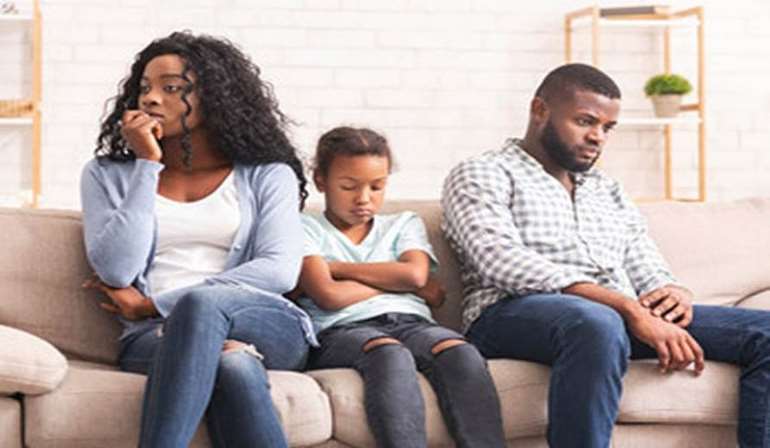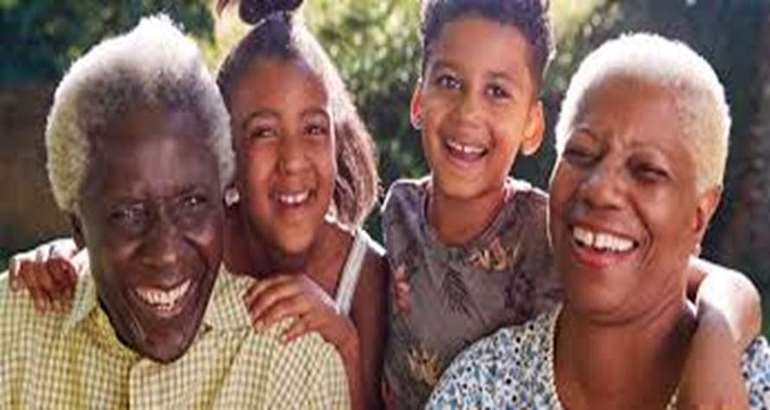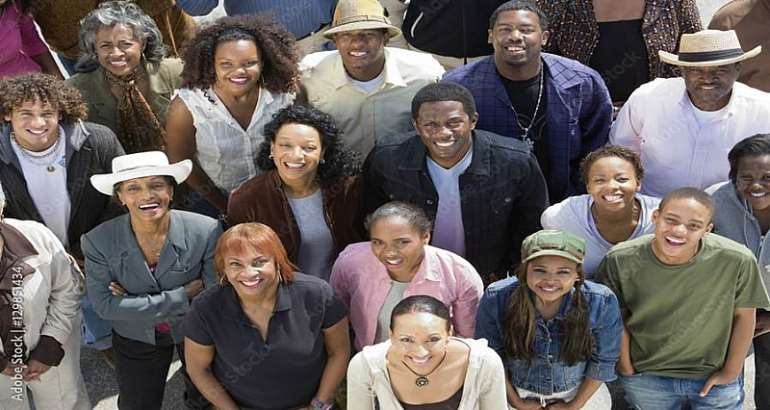In today’s world, insecurity, deception, betrayal, and violence have bred a culture of suspicion and fear among our people. This situation has given rise to a troubling mantra echoed in conversations and shared on social media: “Don’t trust anyone.”
What began as a cautious reminder of a dangerous trend has gradually metamorphosed into a worldview which suggests that it is wiser to trust no one at all, no matter the circumstance. Although this sentiment might be rooted in real experiences of hurt and betrayal, it is a dangerous mindset, especially within the family and community setting. A world where no one trusts anyone else is a world that is devoid of genuine human connection, compassion, growth, and peace. Trust is not just a social nicety; it is the glue that holds all human relationships together. It is the foundation upon which every genuine relationship is built.
Trust is the lifeblood of the family, which is the most fundamental unit of society. It is within the family that every human being first experiences the world. From infancy, children learn to depend on their parents or caregivers. That dependency is not merely physical, it is deeply psychological and emotional. Children cry, not because they merely want food or a diaper change, but because they trust someone will come. They learn safety through the reliable response of the caregiver. If trust is broken at this level, the damage is not only immediate; it can have lasting consequences for how those children perceive human relationships throughout life.
A family that lacks trust becomes dysfunctional. Let us take the example of a household where spouses hide their emotions, their intentions, and their resources from each other out of fear or suspicion. Such a home becomes a war zone – cold, secretive, tense, and lonely. Children raised in such an environment either learn to imitate the distrust they observe, or suffer emotional confusion, feeling caught between conflicting loyalties and uncertain affections. When children see their parents lying to each other, checking one another’s phones in secret, or accusing one another constantly without cause, they internalise the idea that deception is normal and trust is naïve. This can shatter their ability to form stable and meaningful relationships later in life.
Trust within the family enables openness. It allows people to be vulnerable, to speak their minds, to admit their fears and failings without fear of judgment or reprisal. When parents trust their children and children trust their parents, discipline becomes easier, communication becomes clearer, and love becomes more grounded and more effective. For instance, a teenager who trusts his parents is more likely to confess when he has made a mistake, knowing that he will be guided and corrected rather than condemned. Similarly, elderly parents who trust their adult children can age in peace, confident that they will be cared for and respected. A family anchored in trust is a family that thrives emotionally, mentally, and spiritually.

An unhappy family
Outside the family, in the broader community, trust is equally very vital. Communities function only when there is an underlying belief that members will, by and large, act in good faith. People who do business together must trust that contracts will be honoured. Teachers must trust students to do their work honestly, and students must trust that teachers are interested in their success. Drivers must trust that others will obey traffic laws. Employers must trust their employees with company resources, and employees must trust their employers to pay wages fairly and on time. All these interactions, whether social or economic, rest on some level of trust.
When trust breaks down in a community for any reason, what will follow is social fragmentation. Neighbours become strangers. Businesses suffer. Institutions weaken. Law enforcement, governance, and even religious leadership lose credibility. People begin to assume that everyone is out to cheat, exploit, or harm them. This cynical view creates a self-fulfilling prophecy. In an atmosphere of suspicion, people are more likely to act selfishly, pre-emptively harming others before they can be harmed themselves. The community’s social fabric becomes threadbare, frayed by fear and the need for self-protection.
Again, one of the most dangerous consequences of the “don’t trust anyone” ideology is isolation. Inherently, humans are social beings. We are wired for connection, for community, for intimacy. But when trust is eroded, people have a tendency to retreat into shells of loneliness. They stop sharing their thoughts, stop forming deep bonds, stop opening up to others. Depression, anxiety, and suicide thoughts often flourish in such environments of emotional isolation. The irony is, in trying to protect ourselves from the hurt that sometimes accompanies trust, we invite a deeper kind of suffering – loneliness, which eats away at the soul.
It is crucial to understand, however, that trust does not mean blind acceptance. Trust is not the same as gullibility. It does not require us to be naive or to ignore red flags. Rather, it means giving others the benefit of the doubt based on a foundation of relationship, shared values, and mutual respect. In families and communities, trust must be built and earned, and once it is built, it becomes the vehicle for love, cooperation, forgiveness, and progress.

When grandparents are involved
Forgiveness is another critical area that thrives on trust. In any close relationship, be it familial, communal, or romantic, people are bound to make mistakes. Offences will happen. But forgiveness is only possible when there is a belief that the offender regrets the harm and is committed to doing better. Without trust, there can be no forgiveness, and without forgiveness, relationships crumble. People become perpetual prisoners of past wrongs. Entire families and communities have been destroyed because of an inability to trust after betrayal. Yet, there are also countless stories of reconciliation, of families reunited, of communities healed, because people chose to believe again, to trust again.
In this context, it becomes clear why the mantra “don’t trust anybody” is particularly toxic within families. A family must be a refuge from the world, not a battlefield of suspicion. If family members cannot trust one another, who then can they trust? A child who cannot trust his parents has no safe place to shelter. A wife who cannot trust her husband lives in constant emotional tension. A brother who cannot trust his sister becomes estranged. The family becomes a house with walls and no warmth. To suggest that one should not trust anybody, even family members, is to promote a worldview where love becomes impossible.
Moreover, trust empowers growth. Children thrive when they know they are trusted. Spouses flourish when they know they are believed in. Communities progress when leaders trust citizens and citizens trust leaders. Trust encourages responsibility. When someone feels trusted, they often strive to live up to that trust. A trusted employee becomes more diligent. A trusted child becomes more responsible. A trusted partner becomes more faithful. Trust brings out the best in people.
In contrast, suspicion invites deceit. When people are constantly distrusted, they may reason, “Since I am already accused, I might as well commit the act.” A young adult who is always treated like a liar may begin to lie. A spouse who is constantly suspected of infidelity may begin to drift emotionally or physically. Trust, then, is not only a reward for a good character, it is a motivator for good behaviour.

A trusting community
From a societal perspective, the erosion of trust contributes to the decay of national institutions. In countries where citizens no longer trust the government, elections lose credibility, policies are questioned regardless of their merit, and the rule of law becomes difficult to enforce. In such societies, conspiracy theories and misinformation flourish. People look to tribal, religious, or personal networks for security and support, undermining national unity. Corruption thrives when people believe that no one, including the law, can be trusted. On the other hand, nations that enjoy high levels of trust between the governed and the governing tend to enjoy stability, economic growth, and social harmony.
All told, the path to rebuilding trust must begin from the family. Parents must model trustworthiness. Children must be taught honesty and integrity, not only in speech but in conduct. Spouses must commit to transparency, fidelity, and emotional availability. Extended families must resist the temptation of gossip, envy, and betrayal. Trust must be restored one relationship at a time. Communities must foster trust through regular interaction, shared responsibilities, accountability mechanisms, and mutual support.
Religious and educational institutions have a unique role to play in this regard. Faith groups can teach the moral imperatives of trust, love, and forgiveness. Schools can promote social-emotional learning, empathy, and conflict resolution. Leaders must themselves be trustworthy and be seen to uphold values that inspire confidence. Trust grows when promises are kept, when justice is impartial, and when kindness is genuine. Ultimately, the mantra should not be “don’t trust anyone” but “choose wisely whom to trust, and be worthy of trust yourself.” Not everyone is trustworthy, but neither is everyone a liar, a cheat, or an enemy. We must not allow the actions of a few to turn us into a society of cynics. A cautious trust is better than no trust at all. A world without trust is a world without love, without meaning, and without hope.
To build genuine relationships between parents and children, husbands and wives, neighbours and friends, leaders and citizens, trust must be the bedrock. Without it, there is no foundation on which to build. With it, everything becomes possible: healing, growth, joy, and peace. Trust is the oxygen of the soul. Just as the body cannot live without air, relationships cannot survive without trust. To deny trust is to deny life. Especially within families, the cradle of human civilisation, trust must be preserved, nurtured, and passed on from generation to generation. For it is in trusting that we truly live, and in being trusted that we truly thrive. Let us, therefore, resist the dangerous trend of distrusting everyone and work instead to build a world where trust is not just a word, but a way of life.


